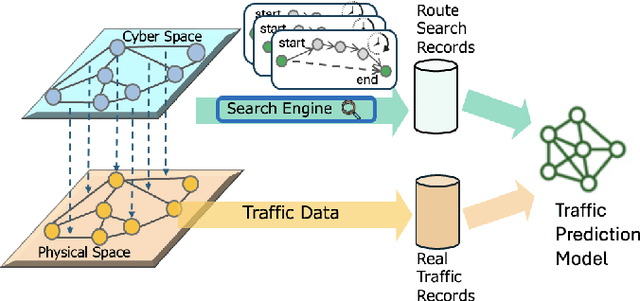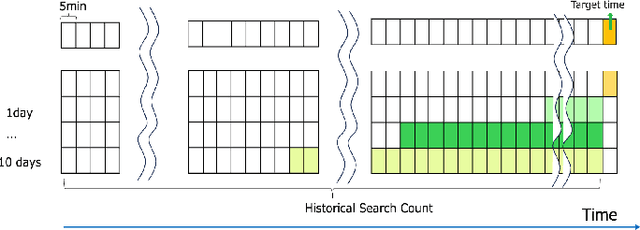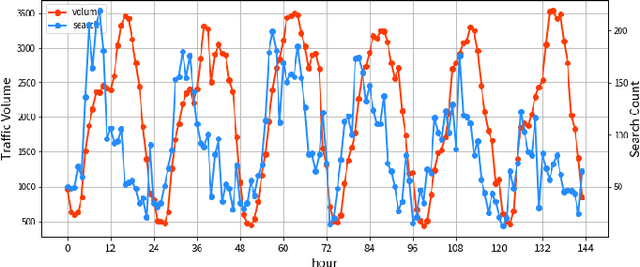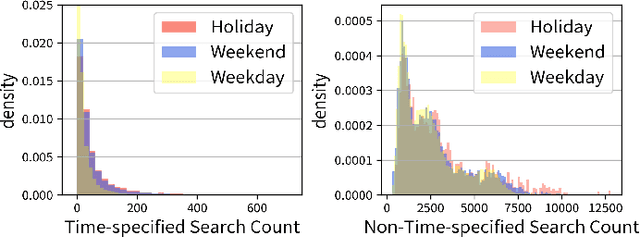FRTP: Federating Route Search Records to Enhance Long-term Traffic Prediction
Paper and Code
Dec 23, 2024



Accurate traffic prediction, especially predicting traffic conditions several days in advance is essential for intelligent transportation systems (ITS). Such predictions enable mid- and long-term traffic optimization, which is crucial for efficient transportation planning. However, the inclusion of diverse external features, alongside the complexities of spatial relationships and temporal uncertainties, significantly increases the complexity of forecasting models. Additionally, traditional approaches have handled data preprocessing separately from the learning model, leading to inefficiencies caused by repeated trials of preprocessing and training. In this study, we propose a federated architecture capable of learning directly from raw data with varying features and time granularities or lengths. The model adopts a unified design that accommodates different feature types, time scales, and temporal periods. Our experiments focus on federating route search records and begin by processing raw data within the model framework. Unlike traditional models, this approach integrates the data federation phase into the learning process, enabling compatibility with various time frequencies and input/output configurations. The accuracy of the proposed model is demonstrated through evaluations using diverse learning patterns and parameter settings. The results show that online search log data is useful for forecasting long-term traffic, highlighting the model's adaptability and efficiency.
 Add to Chrome
Add to Chrome Add to Firefox
Add to Firefox Add to Edge
Add to Edge